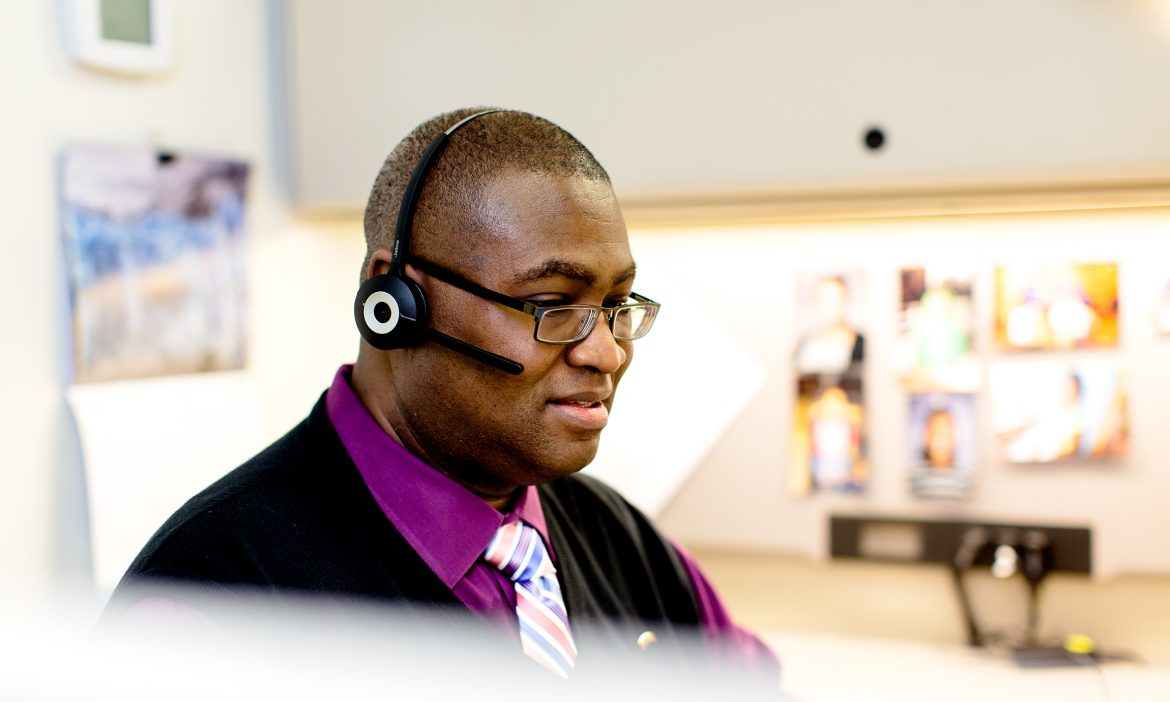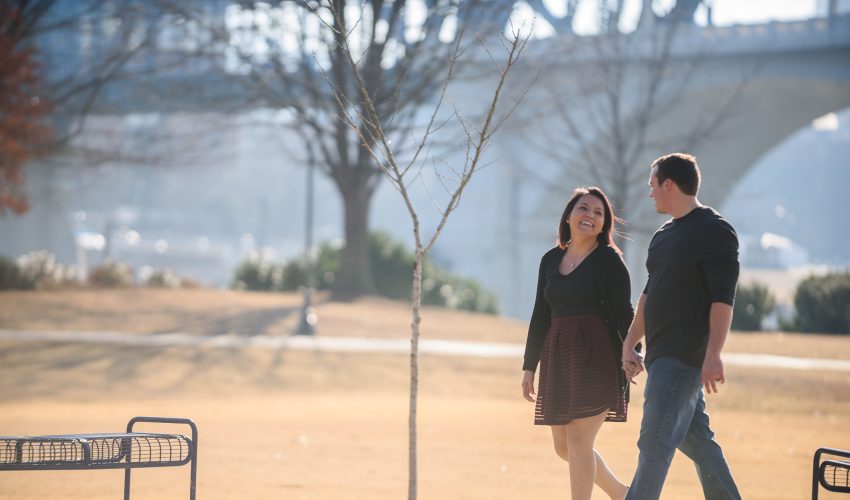“It takes one to know one.”
It sounds like a playground taunt, but it’s key to the life-changing connections that happen at the Mental Health Association of East Tennessee’s Peer Recovery Call Center.
Here, the person picking up the phone to help a troubled caller speaks from experience.
These are people in recovery themselves, ready to share what they have learned from their own journey.
“Someone will call in and know they need help, but they don’t know how to get there,” says Ben Harrington, executive director.
“They need treatment, or they need to find a doctor. Our specialists find out the most pressing issues, and when they say they understand, and that they’ve been there too, it’s huge.
“Shared struggles are so important to someone who thinks they are all alone.”
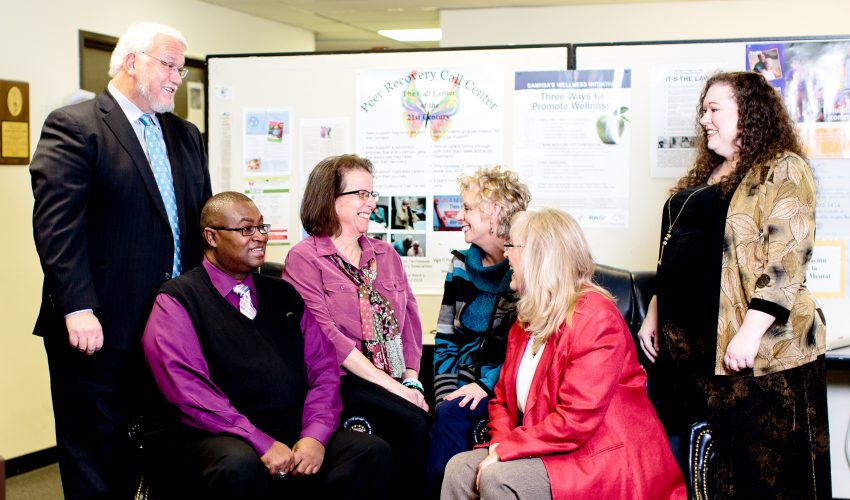
The Call Center staff has a wealth of knowledge and resources to draw on to help callers.
The center began in 2013 to guide those struggling with emotional problems, mental health issues and substance abuse.
Amy Rogerson, who came on board as director in the early days, describes it as a people line, not a hot line or a help line.
“We are one of the only inbound and outbound call centers in the country, which means that we don’t just provide resources and end the call,” she explains. “We call them back to see if they’ve made any progress, and that changes everything.”
The work has an impact on the counselors, too.
Tina Wilder, who has been hospitalized more than a dozen times for schizophrenia, tended not to share her emotions and experiences with others.
Becoming a Certified Peer Recovery Counselor opened doors for her that she thought were permanently closed.
In addition to helping callers every day by telling her story, she now can speak more openly in her own support groups.
“I used to have major panic attacks, because I didn’t express my feelings and emotions,” she says.
“On the phone, listening to someone, I can share some of myself.”
“It’s cathartic; I haven’t had a panic attack in four months.”
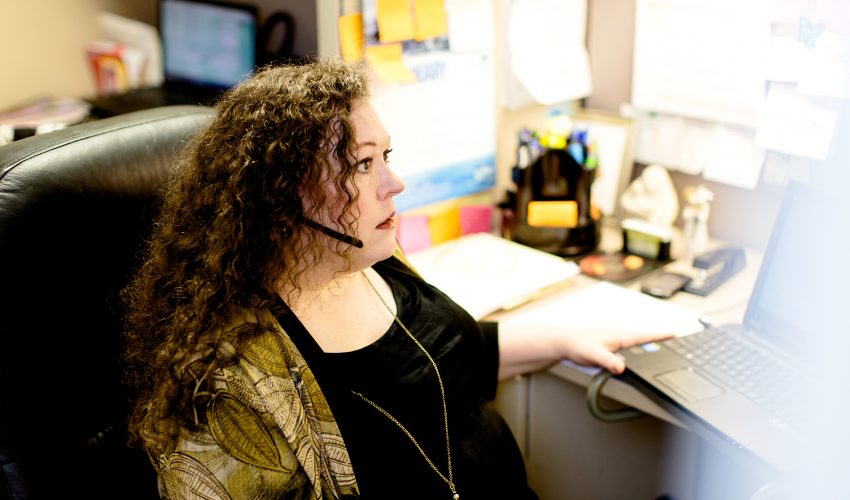
Certified Peer Recovery Specialist Tina Wilder takes a call.
Specific training builds capabilities
Every Peer Recovery Specialist undergoes rigorous training and an internship period as a part of working with callers.
That’s because while shared experience is a great place to start, there are many other skills that need to be locked down to provide the most effective service.
That training can be on anything from nutrition to suicide intervention, as well as HIPAA and confidentiality.
Every Peer Recovery Specialist can recite — many from memory — the contact information for everything from Alcoholics Anonymous (AA) to shelters of every kind.
And they can, and often do, give that information to the same caller repeatedly.
Every aspect of the Peer Recovery Call Center is about patience.
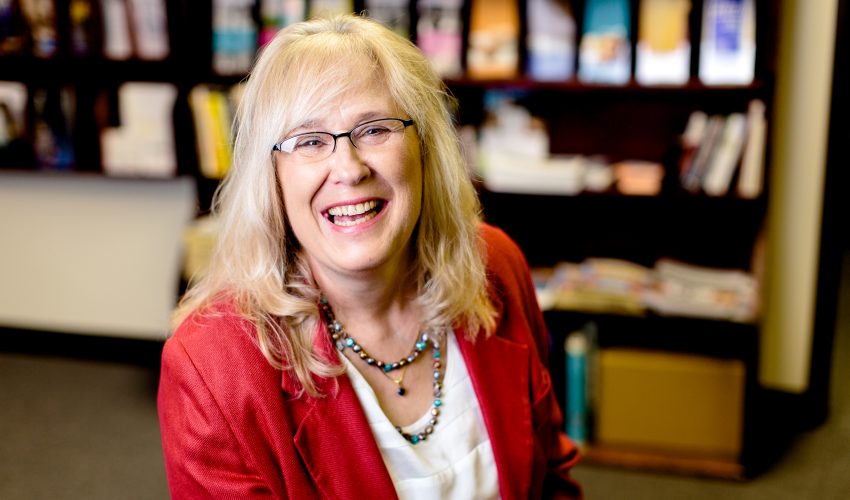
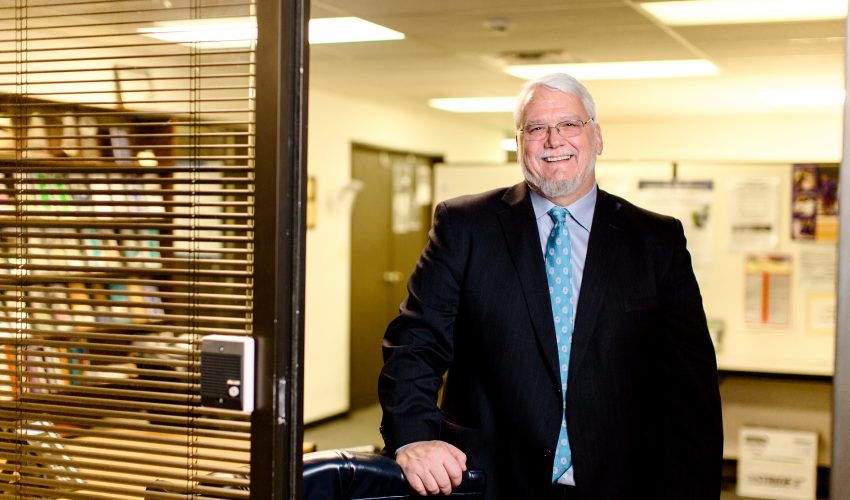
It starts with a subtle but effective channeling of the caller into a conversation that quickly unearths the main reason for the call.
Then it’s all about de-escalation, using everything from voice modulation to specific questions and prompts.
That creates a conversation that’s truly two-sided and leads to a plan.
“I can listen to the call from our end, and hear someone using really appropriate language to help the situation, but also going out on a trust limb,” Harrington says.
“A caller will often say ‘You don’t understand me,’ and then they hear, ‘Well, I haven’t told you this,’ and that’s followed by a limited self-disclosure.
“The caller finds out that the person he or she is talking to has a diagnosis. It breaks the tension, because that caller gets it. He or she is going to get some help. And then it all begins to move forward.”
Sometimes the process takes a while, with long discussions and follow-up calls.
Sometimes the counselor hears back from a caller almost immediately to report that they have taken the first step to get in-depth help.
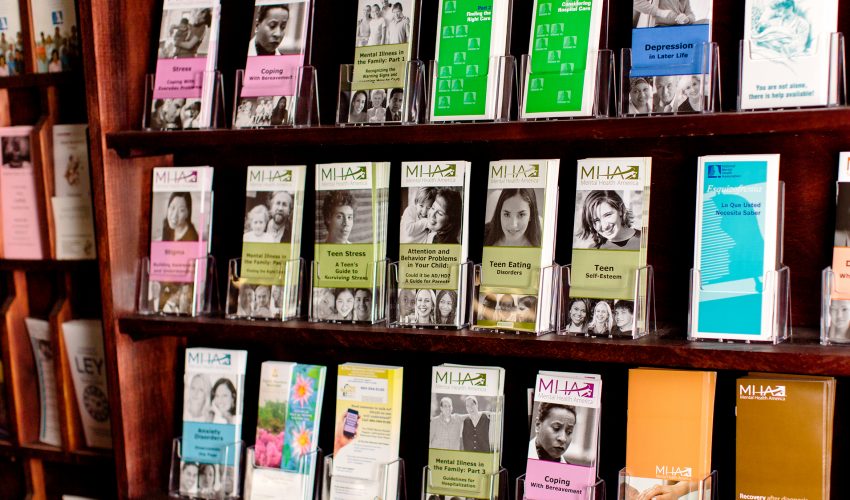
Each win resonates with the entire staff, encouraging them to do more, reach more people, keep paying it forward.
“We connect with every group you can think of, from community meetings like AA to support groups at three inpatient hospitals,” Rogerson says.
“We work with some outstanding therapists at these facilities, but we can serve a different role because of our lived experience.
“We can connect with someone, and let them know that the history of hospitalizations that didn’t work doesn’t matter. The rap sheet doesn’t matter.
“The attempts at getting clean and sober that didn’t take don’t matter.
“If you take two steps back around here, it’s a cha-cha-cha, not a mistake.”
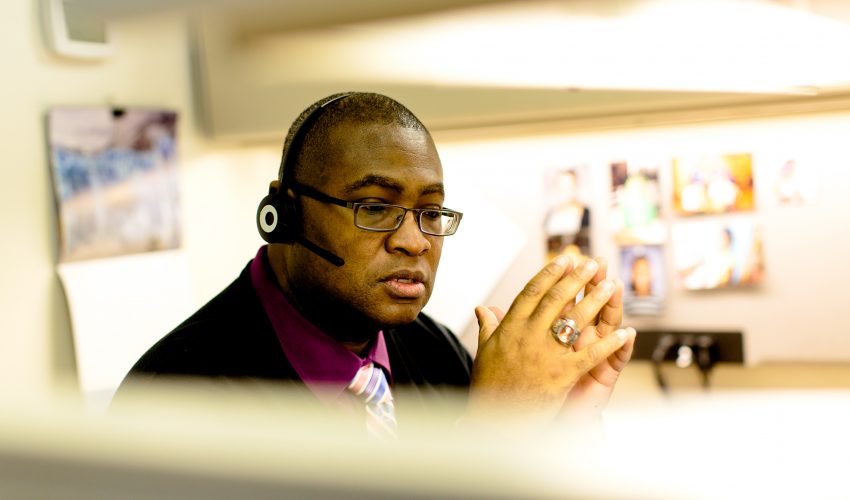
From the fringe to the center
Richard Johnson
After more than two decades of service in the U.S. Army, Richard Johnson found himself with plenty of issues to work through and no clear path forward.
“When I retired I was going to the Veterans Administration (VA), and it was suggested that maybe I try peer support,” he recalls.
“I had gone to some group meetings in the Army and didn’t like them, but I went to one at the VA so I could tell my coordinator that I had tried it.
“It was the greatest thing ever — I stayed through the entire session and kept coming back.”
“I found that being able to interact with my peers and hear the thing they were experiencing helped me communicate and relate better.
“I became sold on the concept, and went from a person who couldn’t stay in a group to one who’s 100 percent a fan because I know how peer support can help you.”
Johnson became a Certified Peer Recovery Specialist, and is now working toward a second Master’s Degree.
He has an innate ability to calm callers as well as an intuitive grasp of just the right resources.
Building trust and rapport is something he works hard on with every call, and when he says he cares he wants the caller to know he means it.
“Their lives mean something,” he says.
“I try to help them understand that while I am doing my job, I am also invested in making sure they get what they need from us.
“They are important not just to themselves, but to their community and to my recovery community, and to the human race in general.”


